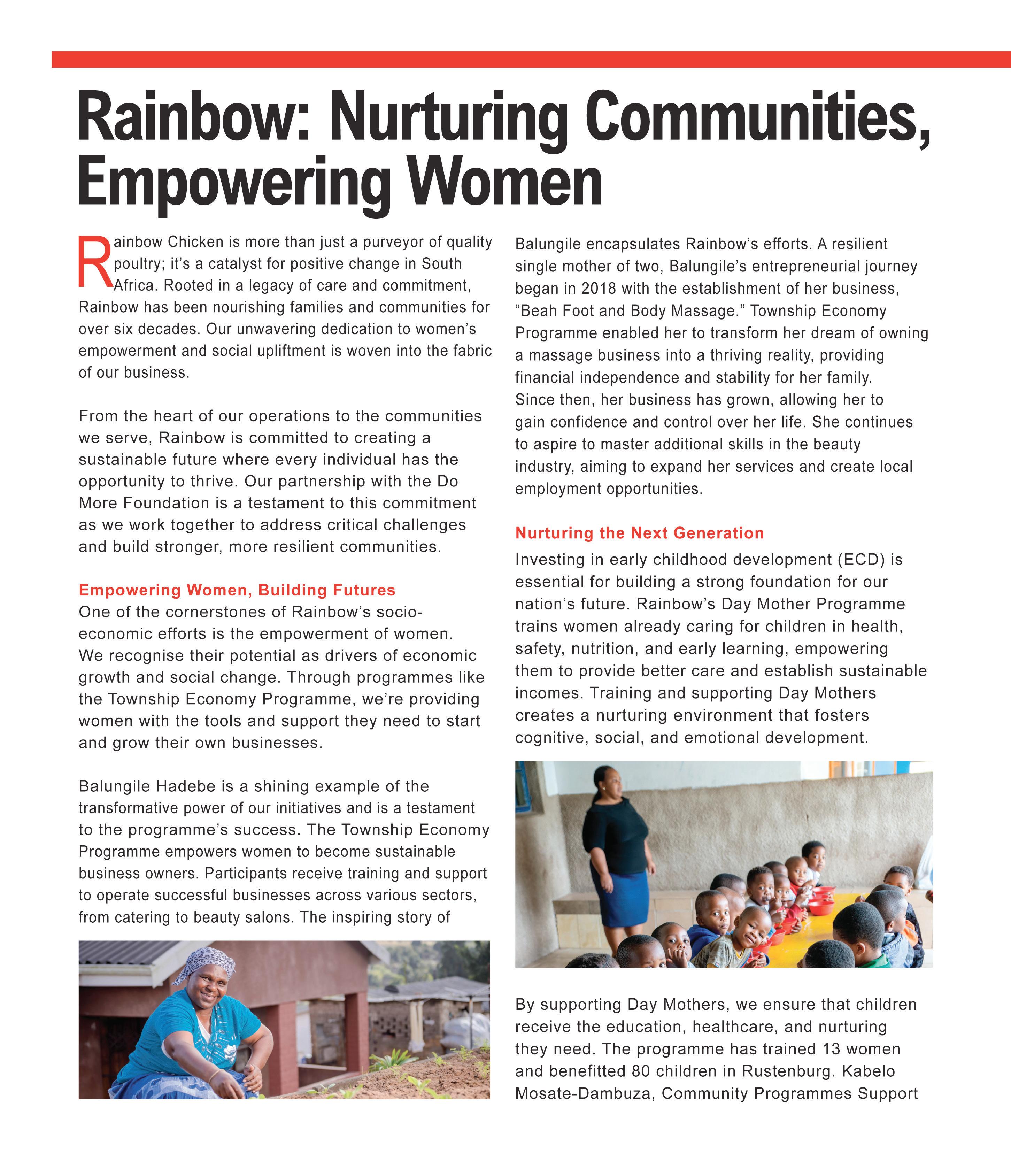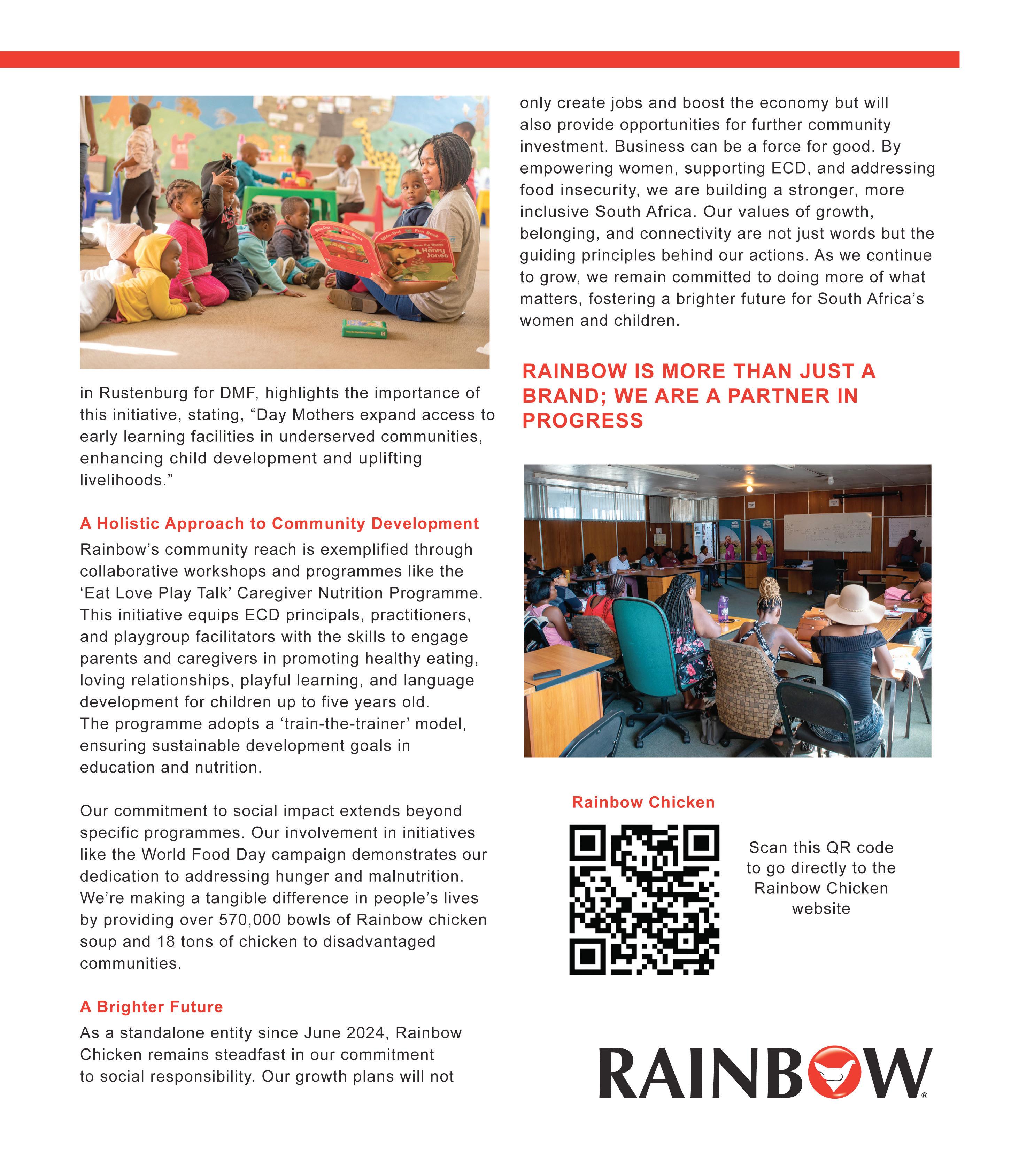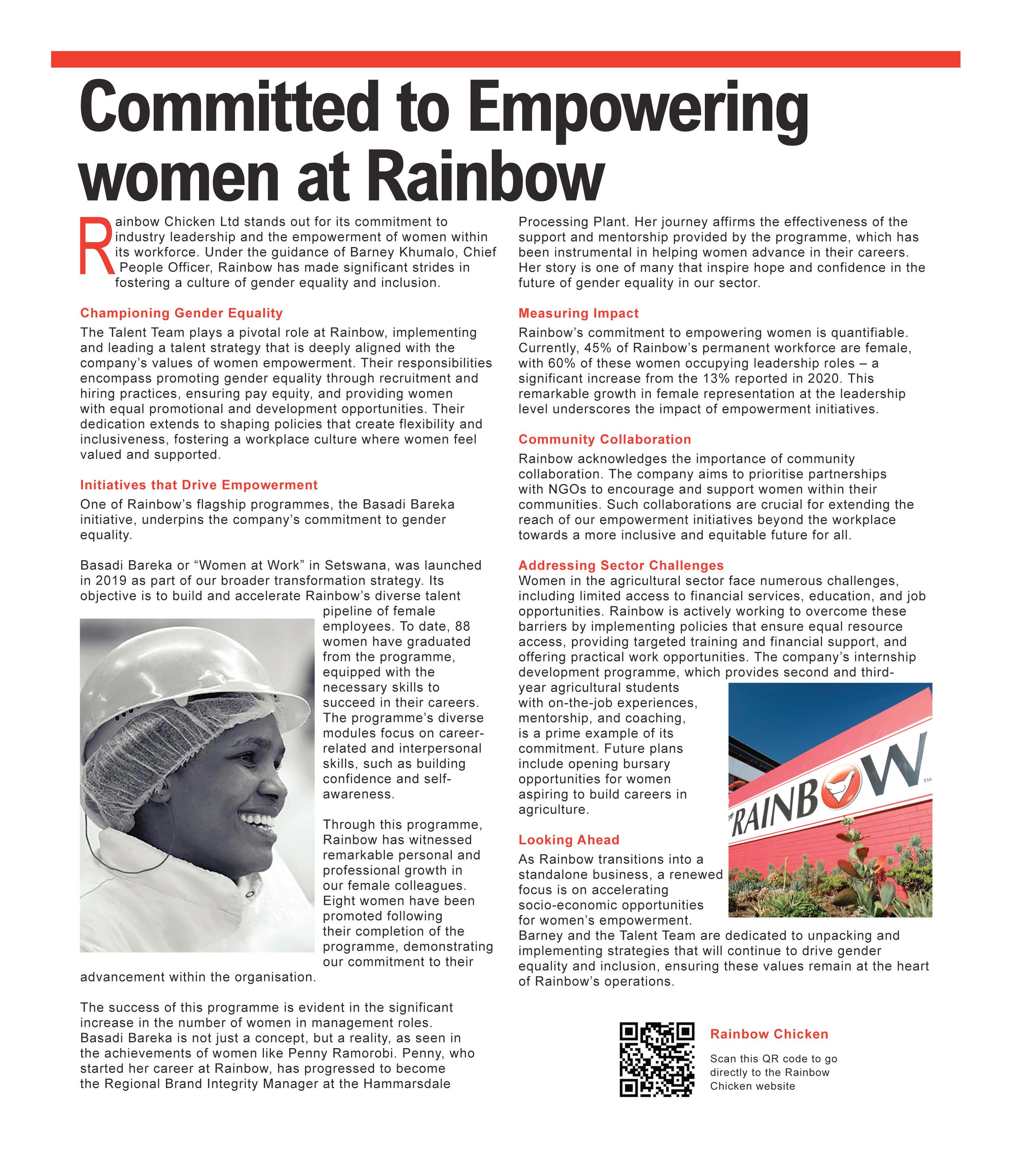




















































































































































































































































As we celebrate women’s month, it is befitting to spotlight the remarkable contributions of women in sectors where they are making a substantial impact. One such sector is waste management, where women increasingly lead the way towards sustainability and innovation, writes FIBRE CIRCLE
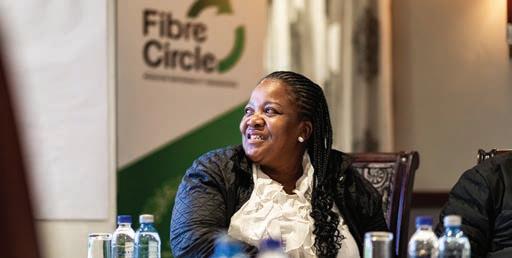
Fibre Circle, the producer responsibility organisation for the paper and paper packaging sector, has taken signi cant strides to support small, medium and micro enterprises (SMMEs) within the waste management sector.
The Fibre Circle SMME Development Programme focuses on equipping entrepreneurs with the skills and knowledge necessary to thrive in this vital industry. By fostering a culture of innovation and collaboration, Fibre Circle is helping entrepreneurs transform waste into opportunities.
The achievements of female entrepreneurs in the programme have been inspiring. The majority of the SMMEs in this programme are led by women who have proven to be resilient trailblazing visionaries. They are creating employment and uplifting their communities, driving economic growth and setting new sustainability standards. Women, such as Dimakatso Mbatha, managing director of DL Consulting, leverage recycling to promote environmental cleanliness and create community employment.
By educating residents on waste separation, Mbatha empowers individuals to generate income through recycling initiatives. Her work highlights the multifaceted bene ts of women’s involvement
in waste management. Mbatha is often described as “Mamfundisi we waste” a recycler of souls and waste because she straddles her role as a pastor and a SMME leader in waste management.
Another beacon of hope is Dobsonville resident Nokuthula Tshabala. “Noks”, as she is popularly known, started as a Pikitup worker and eventually branched out on her own, working independently to establish her own waste management company in 2008 – Trash 2 Treasure –managing over 250 staff members and growing in leaps and bounds.
Re-a-liner collects and recycles glassine backing paper from wine farms and others. It then processes the backing paper by removing the coating and exposing the paper bres, which are converted into handcrafted paper, compost and biodegradable pots, among others. The process for the removal of the coating is patented in South Africa.
Women, particularly in waste management and recycling, face challenges such as gender biases, securing resources and balancing professional and personal responsibilities. Despite these obstacles, they continue to demonstrate remarkable resilience and leadership.

Women bring valuable perspectives, empathy and collaborative approaches, which are great assets in navigating complex organisational transformations.
In recent years, she has brought her two brothers on board after being inspired by her mother to explore business prospects in the waste management industry. The brothers initially came on board temporarily to help while Noks straddled waste management and other revenue stream opportunities. After realising the prospects in the circular economy, the two brothers joined the operation full-time and later recruited their children into the business. Now the family business has three buy-back centres and is continuing to grow.
The waste management sector is not short of women-led, family-owned businesses. Re-a-liner, a family-owned waste management company in Cape Town led by Elréta Burger, is another example.
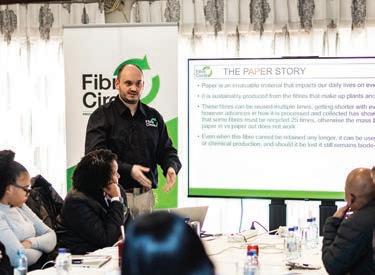
The impact of supporting female entrepreneurs extends beyond individual success stories, contributing to gender equality in the waste management sector. By providing women with access to training and mentorship, Fibre Circle helps close the gender gap, aligning with South Africa’s goals for gender equality and economic inclusion. Sustainability, community wellbeing, and economic growth are promoted. Together, we can support and uplift women in the waste management sector, ensuring a cleaner, greener, and more inclusive future for all.








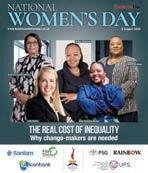
PUBLISHED BY
Picasso Headline,
A proud division of Arena Holdings (Pty) Ltd Hill on Empire, 16 Empire Road (cnr Hillside Road), Parktown, Johannesburg, 2193 PO Box 12500, Mill Street, Cape Town, 8010 www.businessmediamags.co.za
Content Manager: Raina Julies
rainaj@picasso.co.za
Contributors: Trevor Crighton, Glynis Horning, Vukani Magubane, Busani Moyo, Thando Pato, Lisa Witepski
Copy Editor: Brenda Bryden
Content Co-ordinator: Natasha Maneveldt
Digital Editor: Stacey Visser vissers@businessmediamags.co.za
Head of Design: Jayne Macé-Ferguson
Senior Designer: Mfundo Archie Ndzo
Advert Designer: Bulelwa Sotashe
Cover Images: Supplied
Project Manager: Jacqueline Bezuidenhout jacquelineb@picasso.co.za
+27 078 172 7776 | +27 072 430 9392
Sales: Gavin Payne, Tarin-Lee Watts
Production Editor: Shamiela Brenner
Advertising Co-ordinator: Shamiela Brenner
Subscriptions and Distribution: Fatima Dramat, fatimad@picasso.co.za
Printer: CTP Printers, Cape Town
Management Accountant: Deidre Musha
Business Manager: Lodewyk van der Walt
General Manager, Magazines: Jocelyne Bayer



Copyright: Picasso
A look at the challenges and pockets of success in promoting women to leading positions within higher education over the past 30 years.
We talk to women about the shifts happening within previously male-dominated sectors, assess the progress of women over the past 30 years, and ask where to from here.
We pro le women leading change across South Africa’s landscape. We chat about the challenges within their speci c areas of focus and some of the successes they’ve seen.
A look at mental wellness in the workplace and how management can support women’s health.
Unpacking the multifunctionality of the workplace today for women as they navigate a myriad of challenges.
Women in the legal fraternity discuss their journey and offer advice to young women aspiring to follow similar career paths.

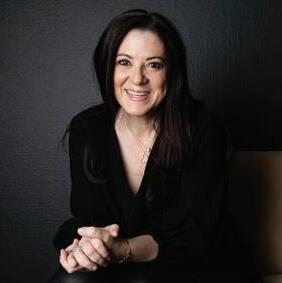
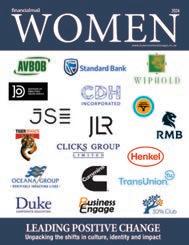

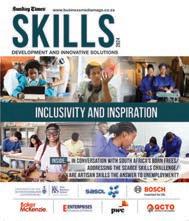




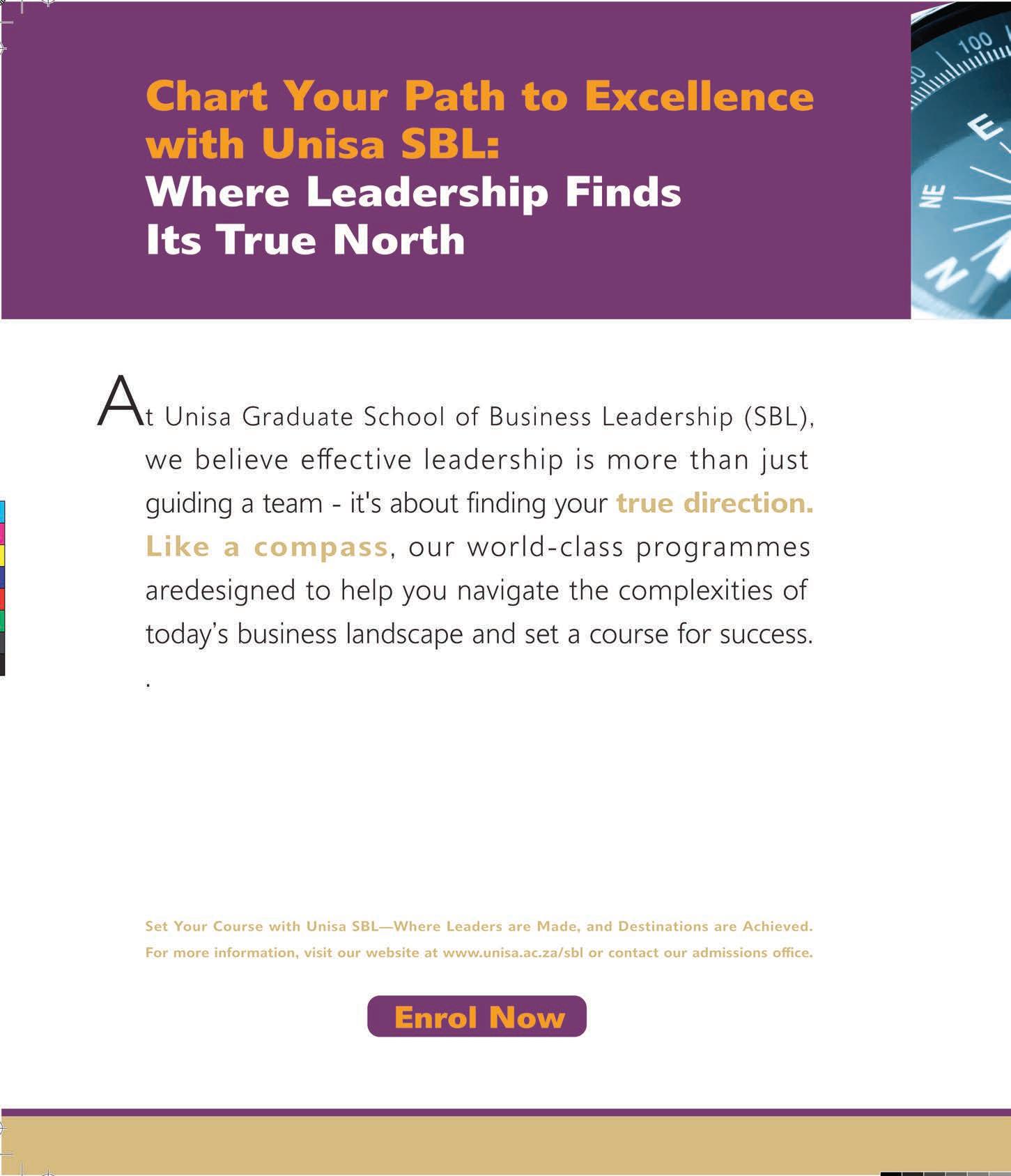

A look at the challenges and pockets of success in promoting women to leading positions within higher education over the past 30 years. By
VUKANI MAGUBANE
The inclusion and acceptance of women in leadership positions within higher education has been a gradual and persistent challenge over the past three decades. Before 1994, academic institutions in the country were led by men, leaving women distanced from positions of power and decision-making.
Historically, women faced (and still do), signi cant barriers to accessing leadership roles and their representation in decision-making was limited. Gender bias and societal norms perpetuate the idea that women are better suited for supportive roles than positions of authority.
“We come from a history where universities were decidedly male-dominated institutions, with women often restricted to administrative positions and lower-ranking positions,” explains Professor Anathea Rhoda, deputy vice chancellor at the University of Free State (UFS). “Today, women are still under-represented in leadership positions – speci cally in top management.”
ENCOURAGING EXAMPLES BUT STILL UNDER-REPRESENTED
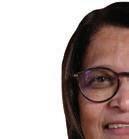
Professor Rhoda emphasises, however, that there are more and more encouraging examples of women who have made their mark and established themselves as great leaders in South African academia. She adds: “We need fairness in pushing the agenda of women empowerment



– not only in the interest of fairness, but also to establish intellectual diversity in our academic institutions and contribute to the social advancement of our country.”
South Africa has 26 public universities, each led by a vice chancellor (VC).
The VC serves as the chief executive of cer responsible for the administration and overall leadership of the institution. Women currently occupy 6 VC positions while males occupy 20.
Professor Brenda Gourtey of the University of Natal (now the University of KwaZulu-Natal) was the rst woman to be appointed VC in 1994. In 1996, Dr Mamphela Ramphele became the rst black woman VC at the University of Cape Town (UCT).
Later years have been marked by other “ rst female” and historical appointments, such as in 2020 when Unisa appointed Professor Puleng LenkaBula as the university’s rst female VC in its 148-year history.
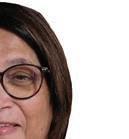


“In reality, universities mirror our society. South Africa is still patriarchal, particularly in leadership positions where males dominate,” says Brightness Mangolothi, executive director of Higher Education South Africa, a nonpro t organisation advocating gender equity in higher education for the past 20 years. Its aim is to promote and aid the development of female leaders in tertiary education.


“Over the past 30 years of democracy, South African universities have had 156 opportunities to appoint VCs. With 26 universities in the country, each VC serves a ve-year term. Collectively, these institutions have had six chances to appoint a woman as VC (26 universities x 6 opportunities = 156),” she explains. “However, why women are not being appointed remains the question. Some universities still have to have a female VC, and when a woman’s term ends, the vacancy is not lled by another woman.”
College campuses also grapple with the intersection of race, class and gender. “Racism is still present in our universities and won’t go away soon. The different ‘isms’ – sexism, racism, ageism, classism and nationalism –are at play,” Mangolothi explains.







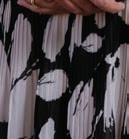


GENDER BIAS AND SOCIETAL NORMS PERPETUATE THE IDEA THAT WOMEN ARE BETTER SUITED FOR SUPPORTIVE ROLES THAN POSITIONS OF AUTHORITY.
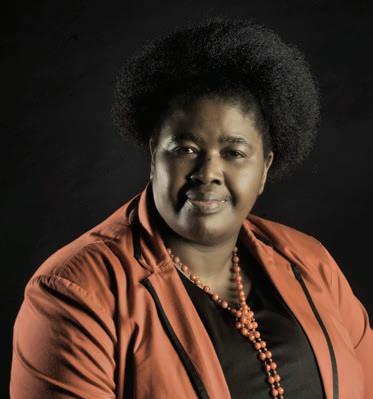
“THE UNDER-REPRESENTATION OF WOMEN IN LEADERSHIP POSITIONS IS NOT THEIR MAKING. GATEKEEPING IS BLOCKING WOMEN FROM CLIMBING THE LADDER.”
– PROFESSOR TEMBISA NGQONDI
This under-representation of women in leadership roles in universities is not just an issue locally, but also globally. Inequality and lack of inclusion of women is an ongoing challenge that derails, slows down and obstructs women advancing into leadership roles.
“I am disappointed in the slow pace in getting women in higher roles in higher education in South Africa and globally,” says Professor Tembisa Ngqondi, dean of the Faculty of Information and Design at Cape Peninsula University of Technology.
“The under-representation of women in leadership positions is not of their making. Gatekeeping is blocking women from climbing the ladder. The media labelling of women immediately discourages young women from entering higher education. They fear failure and the women before them are labelled as failures.
“I remind them of the resilience of these women who are role models. Despite the challenges, women are aspiring to get into these positions.”
Professor Ngqondi is not deterred and one day would like to assume the role of a VC and
continue to be a role model for black females who want to succeed in academia.
Her journey is already an inspiration – one of resiliency and beating the odds. She was a domestic worker before returning to school to get her matric and further her education. She is the rst person from her village to obtain a PhD.
Other factors impeding women include lack of support, selection processes, family dynamics, lack of mentoring and networking and organisational culture.
Professor Ngqondi says the structures at universities responsible for hiring decisions are male-dominated and policies must be strengthened when it comes to appointments.
“Are the councils male-dominated or is there a balance,” she asks. “Can they advocate for change when it comes to advocating for change? So, few look at equity when it needs to be addressed at council level. If the council is not diverse, how can they drive diversity at senior levels?
“The structures of university are not designed to implement policy effectively. Transformation is not going to happen. We live in a democracy, but women are still oppressed. It was an oppressive environment for women even before democracy,” she adds.
Professor Nokuthula Sibiya, acting VC and principal at Mangosutho University of Technology, says the sad reality is that too few women are getting their doctorates, a prerequisite for most upper-level jobs in higher education.


























“Higher education is structured in a way that favours males. I have gone up the ladder and males are the decision-makers. Councils are the highest decision-making bodies, and they are mostly male. The majority of women who make it are either single or divorced. The patriarchal environment does not support women,” Professor Sibiya says.
Work and family con ict due to societal expectations that call for women to serve their husbands and family hinder women and “the big rock holding back your progress is your partner and family and the con ict that happens between family and work”, she says.
Sibiya says she is optimistic because when she started there were two VCs and now there are six. “There is hope. When a male leaves, let’s give a female a chance and not repeat what happened at UCT,” she says. “VCs should be held accountable for not meeting employment equity and it should not be a tick-box exercise. If not, 30 years from now we will still have six vice chancellors and no gender equity.”
The wins women have achieved in pushing for equal representation have resulted in women advancing.
“It is dif cult to root out subtle discrimination, such as women being overlooked for promotions and facing scepticism about their expertise and leadership style. But fortunately, we have seen a renewed focus on establishing a detailed, transparent and fair policy environment at many of our institutions of higher learning,” Professor Rhoda says.
“Certainly here at UFS, it is essential that our academic leaders never lose the impetus to ght for gender equality. My position brings me in contact with a great variety of female academics at different stages in their academic journeys. These journeys can be tough. I always encourage them to have a long-term vision and to appreciate and savour the processes that will shape them and ultimately bring about rewards.”

A 2024 study by UNESCO’s Institute for Higher Learning showed that women outnumber men at undergraduate and postgraduate levels at most institutions of higher learning surveyed in Southern Africa. However, they are a minority at doctoral and postdoctoral level. This gender imbalance is particularly pronounced in STEM (science, technology, engineering and mathematics) disciplines at all levels.












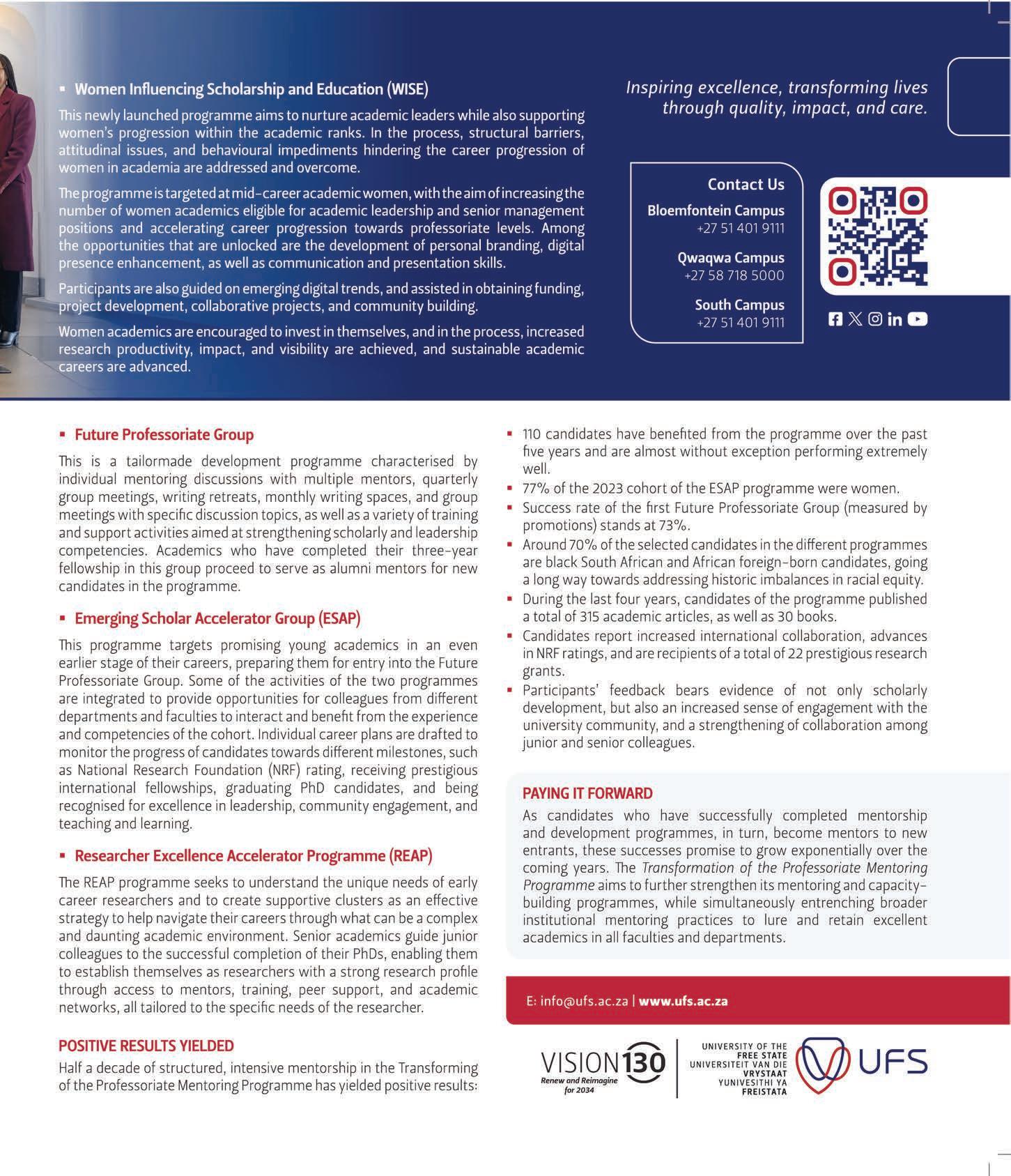
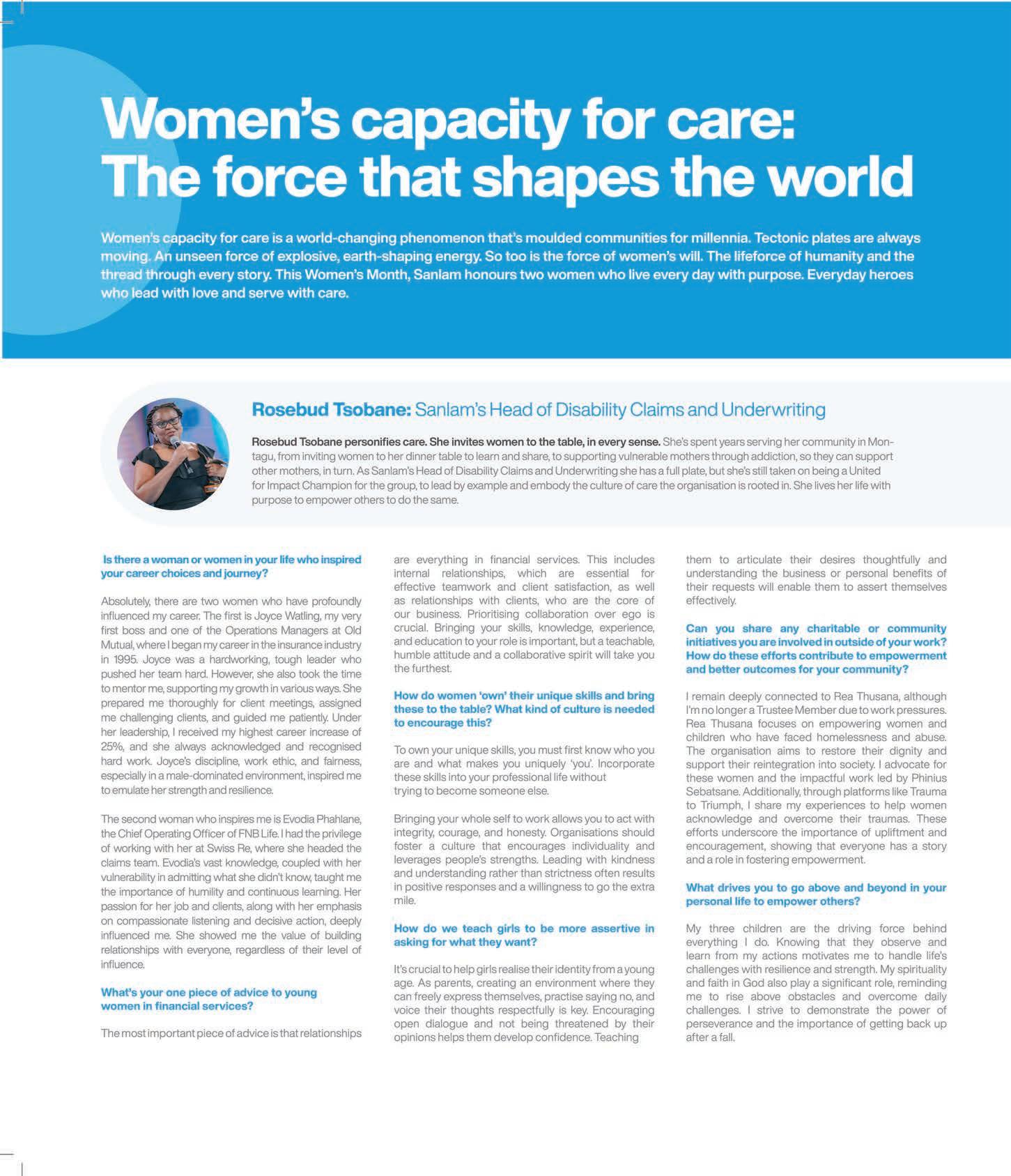
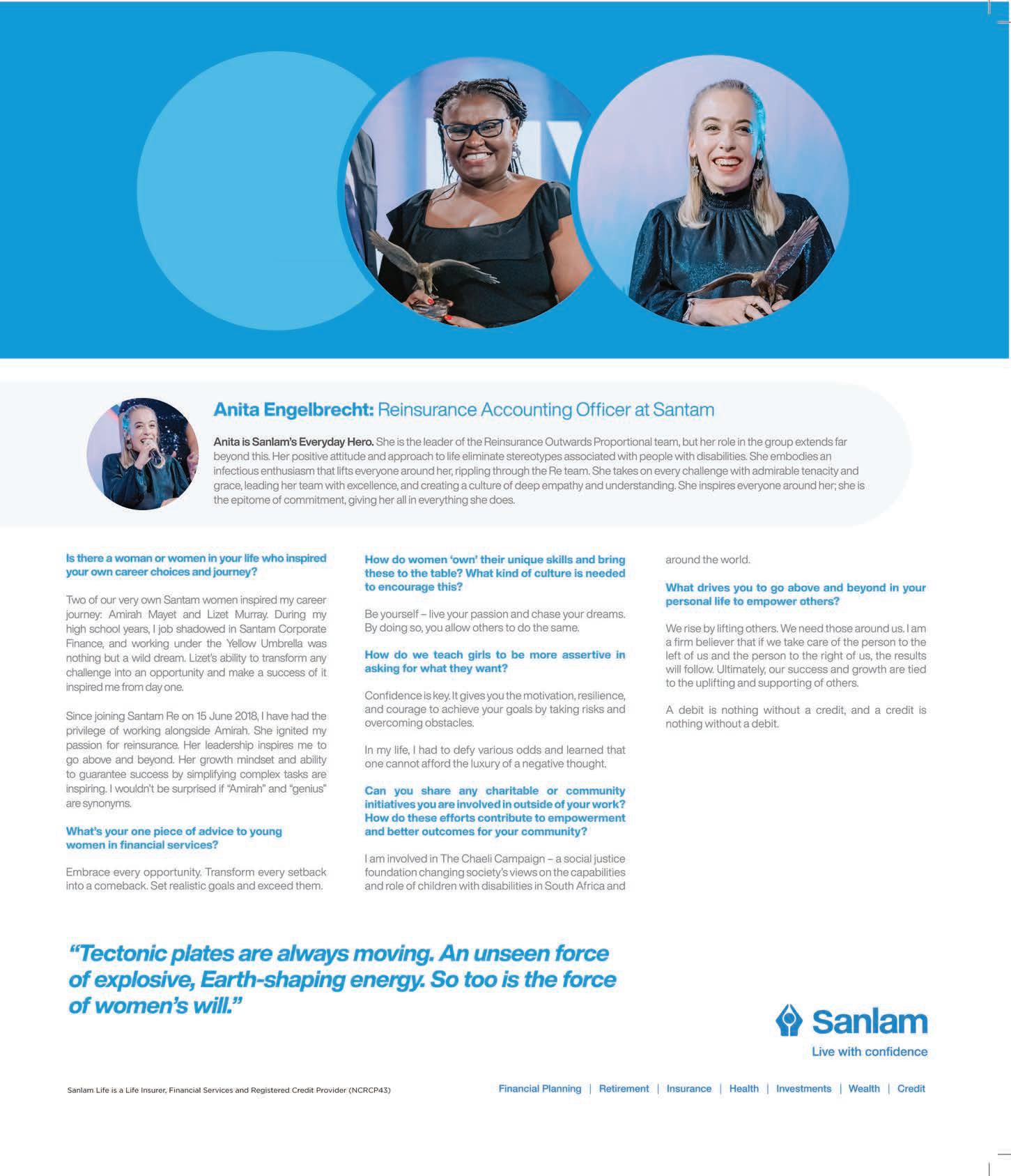
Speaking with two women operating in previously male-dominated industries, BUSANI MOYO discovers a paradigm shift
The South African Constitution, revered worldwide and known for being rmly committed to human rights, has provided a robust framework for legal reforms and policies promoting equality, leading more women to participate in the country’s economic life. This has resulted in more women entering previously male-dominated industries, including the built environment, motoring and engineering. We hear from two women at the coalface of this shift.
A casual observation would show that more women are entering industries that were once reserved for men. This view is based on the assumption that women today have the same opportunities as males to enter any sector they want. But is this the case?
Re lwe Buthelezi, president of the Engineering Council of South Africa (ECSA), says: “Between 2013 and 2023, the number of women in engineering registered with the Engineering Council of South Africa grew from 433 to 1 033. This indicates a 138 per cent increase in 10 years.” She adds: “While the overall percentage of female engineers remains lower, there’s certainly a positive shift.”
Yuliia (Julia) Varchuk is the Ford power train operations plant programmes and engineering manager at Ford South Africa’s Struandale engine plant. Asked whether there is a shift where more women enter previously male-dominated industries, she says: “Yes. Globally, we are seeing more women breaking the status quo and pursuing careers in male-dominated professions.”
She attributes this growth in women entering male-dominated industries to several elements, including more women enrolling in STEM (science,
technology, engineering and mathematics) educational programmes, companies and governments implementing policies that increase gender diversity inclusivity and mentorship programmes and changing societal attitudes towards gender roles.
Varchuk adds: “There is growing awareness about the importance of gender diversity in driving innovation and improving business outcomes. Advocacy groups support women in male-dominated elds through networking opportunities, scholarships and professional development programmes.”
considered for leadership roles”. She adds: “Networking opportunities are often male-dominated. Women are often excluded from informal networks and social activities important for career growth, such as after-work gatherings and sports outings.”

Both Buthelezi and Varchuk are clear that while progress has been made concerning the inclusion of women in previously male-dominated industries, women still face hurdles.
Buthelezi says: “It’s important to remember that these are still male-dominated elds. While the numbers are increasing, women are generally under-represented, particularly in leadership positions.” She adds: “There’s still work to be done to foster a more inclusive environment and promote women’s advancement within the engineering industries.”
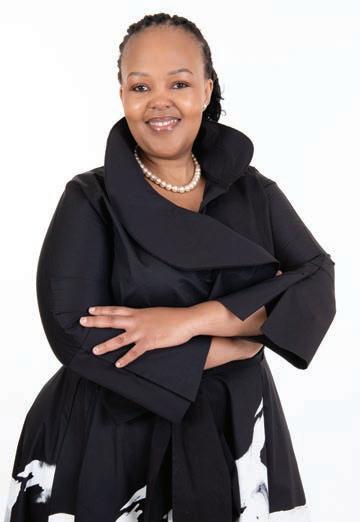
For Varchuk, the signi cant challenges are related to the reality that “women often face stereotypes questioning their competence in technical elds, affecting hiring, promotions and daily interactions. Implicit biases can make it harder for women to be taken seriously or
Interestingly, the two women emphasised an issue that many people may consider insigni cant in general: jokes.
Buthelezi explains: “Subtle comments, assumptions or jokes that reinforce gender stereotypes can be isolating and create an unpleasant work environment.” Varchuk says: “Sexist jokes and micro-aggressions create a hostile environment, undermining women’s con dence and productivity.”
Other issues women face, as identi ed by both Buthelezi and Varchuk, include lack of mentorship, coaching and sponsorship. They also note that women often bear disproportionate family responsibilities, limiting their availability for career advancement opportunities such as overtime, travel or relocation. Both agree that women in male-dominated industries earn less than their male counterparts.
Buthelezi and Varchuk also agree on the solution to get more women into male-dominated industries. Varchuk suggests: “Attracting more women to STEM elds requires a multifaceted approach: integrate STEM topics into early education with hands-on activities and interactive learning. Bring in female scientists and engineers to inspire young girls.”
Buthelezi agrees: “Start by challenging gender stereotypes around STEM subjects from a young age. Promote STEM education for girls in elementary school and highlight female role models in these elds.”
“THERE IS GROWING AWARENESS ABOUT THE IMPORTANCE OF GENDER DIVERSITY IN DRIVING INNOVATION AND IMPROVING BUSINESS OUTCOMES.” – YULIIA VARCHUK
Amid the challenges, BUSANI MOYO discovers women are leading change across South Africa
While women today may not face the same challenges as those who came before them, they are still leading change and are as deserving of honour and celebration as their compatriots, such as Sophie DeBruin-Williams, Miriam Makeba, Helen Joseph and Helen Suzman, who led the way before them.
Anyone privileged to speak with women who are change leaders soon realises one thing: they refuse to accept the status quo. This is the feeling you get when talking with Moipone Sebatjane of InnerChange SA, an organisation working to address poverty by growing community leaders. Sebatjane de nes a change leader as a “person who looks or sees beyond normal, beyond the surface, who is willing by character to notice things that seem normal but are not normal and respond to that.” She says such individuals “challenge the norms for a better future”.

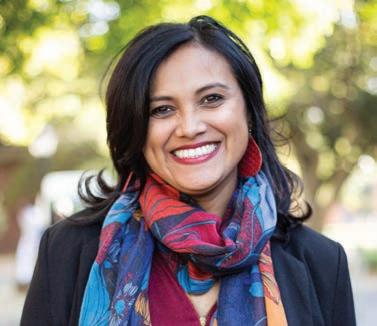
Professor Sarojini Nadar, director of the Desmond Tutu Centre for Religion and Social Justice, agrees with Sebatjane, adding: “A change leader is someone who fundamentally transforms spaces rather than occupying them within the existing oppressive frameworks.” She gives an example: “In the context of higher education in South Africa, this means actively challenging and dismantling the patriarchal and white colonial structures that persist in academia. Unlike those who adopt the rhetoric of decolonisation and feminism merely as a performative measure or career advancement tool, a true change leader embodies these principles through consistent, transformative action.”
What does this mean in reality? She clari es: “This involves reimagining and reconstructing the academic environment to re ect the experiences and knowledge of marginalised subjects.”
Professor Nadar believes the challenges faced by women change leaders cannot be divorced from “deeply entrenched patriarchal and colonial systems.” She refers to the higher education area, where she operates:
“One major issue in our current context is the super cial appropriation of feminist and decolonial language by institutions and individuals. This performative allyship (solidarity) often reduces profound transformative agendas to mere tick-box exercises, where everyone is doing something decolonial or feminist without true commitment to the causes. This undermines genuine efforts for systemic change.”
Sebatjane also touches on the entrenched systems and how they can pose challenges for women. She explains: “Women are vulnerable, and that makes it easy for one to succumb to abuse or get violation of some sort.”
As expressed by Sebatjane, these challenges are multifaceted. She says some of the expected norms are that a “woman is supposed to behave a certain way, the dos and don’ts, a woman isn’t supposed to be open-minded or speak up and make their voice to be heard, or else they are considered as indifferent, loud and obnoxious or cheeky ... a woman is supposed to be reserved, contained and be seated!” Sebatjane believes that this can lead women “into depression and loss of hope”.
Despite the challenges women face in their different areas of interest, there are pockets of success. In the area Sebatjane operates, ministry, she reports: “Women have a different eye for nding resources.” She mentions how her organisation leverages community spaces to target bene ciaries at the individual level, even though being granted access can sometimes be a long process.
Professor Nadar celebrates that “the increasing movement of women, particularly black women, reclaiming their health and wellbeing in a context that devalues their labour or only views it as transactional” is an important success. She adds: “Books like Tricia Hersey’s Rest is Resistance underscore the importance of resisting patriarchal capitalist demands on women’s bodies and labour.”
Professor Nadar concludes: “By advocating for rest and self-care as forms of resistance, women are challenging the exploitation inherent in traditional academic and professional structures. Leading change is undeniably arduous, requiring immense emotional labour and resilience, but these efforts are essential for creating a truly transformative and just society.”
“A CHANGE LEADER IS SOMEONE WHO FUNDAMENTALLY TRANSFORMS SPACES RATHER THAN OCCUPYING THEM WITHIN THE EXISTING OPPRESSIVE FRAMEWORKS.” –
PROFESSOR SAROJINI NADAR

Creating a more women-informed lens in mental wellness in the workplace is essential to ensuring equity and inclusivity. Knowing how the workplace influences women’s health and the employer’s role is essential. By GLYNIS HORNING
Durban industrial psychologist Robyn Sandy of Interchange International SA, says: “In today’s tough economy, there’s an obsession with achieving year-on-year growth at all costs, which increases the pressure on management and takes the joy out of many types of work.”
One in three South Africans will have a mental illness in their lifetime, according to the SA Depression and Anxiety Group (SADAG) – and research published online in Medical News Today shows women are two to three times more likely than men to experience depression, generalised anxiety disorder and post-traumatic stress disorder (PTSD). Many factors can be behind mental illness, but women are disproportionately affected. The studies suggest gender inequality and discrimination are at play, exposing women to chronic stress, negative self-image and trauma. Despite progress in women’s rights and gender parity, inequality and discrimination persist. United Nations Women notes that while, in most regions, women have caught up with or are even surpassing men in educational attainment, especially at tertiary level, “women remain under-represented in management in the workplace”, holding just 28 per cent of management positions. In South Africa, the Department of Employment and Labour’s Annual 2023 Employment Equity Report reveals women make up 37 per cent of senior management, but only 26 per cent of top management.
This year, globally, half of women say they still bear the most responsibility for childcare (up four per cent from last year), and almost half are concerned about their personal safety in the workplace or commuting for work. The report shows long working hours are taking a toll, women are more stressed than last year, and mental health stigma persists. Almost half the women surveyed are “concerned or very concerned” about their mental health, yet many aren’t receiving adequate mental health support from their employers and “don’t feel comfortable talking about their mental health in the workplace”. A full 95 per cent believe requesting or taking advantage of exible work opportunities will “negatively affect their career progression”.
Strikingly, just six per cent of women say they work for a “gender equality leader” organisation and add that they feel safer and more at ease talking about their mental health at work and working exibly. Clearly, this is the direction in which organisations need to move – for when management supports women’s health, the entire workforce can prosper.
LONG WORKING HOURS ARE TAKING A TOLL, WOMEN ARE MORE STRESSED THAN LAST YEAR, AND MENTAL HEALTH STIGMA PERSISTS.


1. Develop the right culture. “If the leader, male or female, creates the right culture, people will feel safe and supported and free to talk openly about their problems,” says Robyn Sandy of Interchange International SA.
2. Address the gender pay gap from the beginning. “When a woman is offered a job, she should be offered the correct pay,” Sandy says. Measure the gap with an annual pay audit, including factors such as education, experience and performance, and track developments and correct disparities as they arise.
3. Ensure workplace harassment is readily addressed. Do employees feel comfortable coming forward to report incidents and seeking mental health treatment?
4. Give employees mental health education, tools and support, and encourage mental health communication in the workplace. This could be by offering an Employee Assistance Programme bringing in speakers from an organisation such as the SA Depression and Anxiety group.
5. Model authentic vulnerability. A company leader who opens up about personally dealing with issues such as depression can earn trust and lessen stigma. “This is a powerful way of creating the right culture of openness and support,” says Sandy.
The World Economic Forum’s Global Gender Gap 2024 Report shows that globally, women’s representation in senior leadership roles across every industry has seen “modest improvements” since 2016. The nancial services sector is highlighted among the top four sectors for improvement in these criteria from 27.5 to 29.7 per cent.
While inroads have been made in certain areas of nancial services, pockets of disparity still exist within particular sub-areas. According to a Gordon Institute of Business Science 2023 report, Diversity in Asset Management, women account for 17.2 per cent of portfolio management professionals in South Africa.

“Re ecting on my career in the nancial services industry, the most signi cant challenge experienced so far has been to ‘crack the boys club’ where gender bias is a reality,” says Wendy Myers, Head of Securities at PSG Wealth.
Myers says women are expected to deliver more than their male counterparts and are treated differently. “I have experienced instances where male managers have a more relaxed relationship with men reporting to them, so engagement with women tended to be more formal, leading to different expectations on performance where women are expected to do more than their male counterparts,” she explains.
Affiliates of the PSG Financial Services Group, a licensed controlling company, are authorised financial services providers. For more information visit, www.psg.co.za Women
Women tend to be typecast in roles requiring attention to detail whereas men tend to dominate more in strategic roles. “I believe women can easily transition across both skill sets when given the opportunity. Ironically, it was a woman who offered me my rst opportunity into a strategic role,” she says.
PSG Asset Management CEO
Anet Ahern believes, despite its shortcomings regarding the rate of change in gender parity, the local industry has come a long way. To grow more female leaders in nancial services, she says women must use the gender bias argument thoughtfully and judiciously. “Sometimes no reaction is the most powerful one. But de ne your line and when it is crossed, act, escalate, deal with it and move on.”
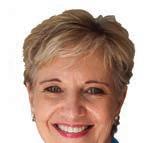
Insure, believes excelling in one’s role will open the doors. “My only strategy was to do my job really well. My knowledge, dedication and conduct were noticed and led to opportunities I would not have even considered.”

Rimmer, who has often been the only female in management teams, says she never felt she had to compete with male colleagues or do something different or additional to be accepted. “It was always important to me to be the person I am, but also a team player.”
For Ahern, success for female leaders lies in resilience. “My journey was not easy. Obtaining my CFA while still an administrative assistant in the trading of ce (with an honours degree) sent a strong signal and acknowledgement of my ambitions.”
She believes taking on more responsibilities demonstrates skill and willingness. “Taking on unpopular or menial tasks may win additional recognition, but must be handed over once your willingness to help has been proven.”
Despite pay disparities in certain areas, Karen Rimmer, Head of Distribution: PSG
Another signi cant challenge is the career trajectory for women. According to the World Economic Forum’s Global Gender Gap Report nancial services experience the second-highest drop-off rate of female employees progressing to leadership roles, with a C-suite-to-entry-level ratio of 44 per cent.
Says Myers: “When I expressed my desire to grow and develop into more senior and strategic roles, I was not supported by my manager due to the need to retain me in my current role given my specialist knowledge.”
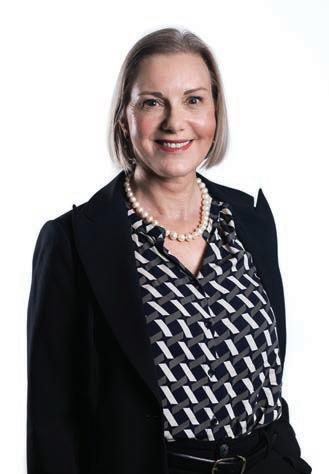
Rimmer believes the environment is already inclusive. “Women must claim their space and not shy away from the opportunities available. Leaders are respected for their results and how they inspire their staff; these characteristics are not gender speci c and, as females, we may even have the competitive edge,” she concludes.


Three leaders in the financial services sector share their thoughts and experiences about being female leaders and how they advocate for women in their businesses. By THANDO PATO
McKinsey’s 2022 Women in the Workplace report shows that women in leadership roles are often at the forefront of cultivating inclusivity within the workplace because they are twice as likely to drive diversity, equity and inclusion (DEI) initiatives than their male counterparts.
In 2019, US researchers Jack Zenger and Joseph Folkman published research that showed women leaders excelled and outscored men in several key areas differentiating excellent leaders from average or poor ones. In the study, women leaders scored better in categories such as building relationships, inspiring and motivating others, bold leadership and championing change.
Both studies illustrate that the roles and requirements of leaders are rapidly evolving and leadership is increasingly becoming multifunctional, requiring leaders to engage their “hard and soft skills”. “It is critical that modern leaders know how to integrate hard skills, such as technical and domain-speci c knowledge, with soft skills,” says Alicia Greenwood, JSE Clear CEO and director: post-trade services.
Lesley-Anne Gatter, global head of people and organisation at Investec, says for any leader – male or female – modern leadership is about balancing complexity and competing tensions.
“Leadership complexity extends beyond individual mentoring, skills development and performance. It involves belonging with the same degree of commitment to varied teams and applying oneself in each context. This requires a strong personal presence, a diverse skillset, an appreciation for context and a genuine effort to understand and connect with people.”
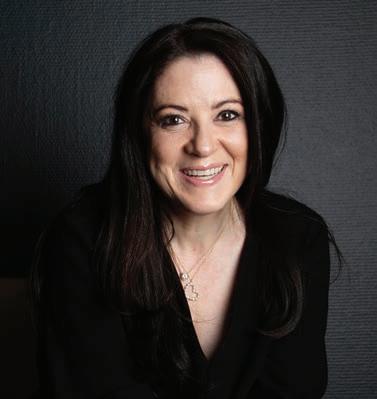
Lesley-Anne Gatter
“WOMEN ARE NOT SCARED TO ‘ROCK THE BOAT’ BY ASKING MANY QUESTIONS. WE ARE NOT SHY ABOUT ACKNOWLEDGING WHEN WE DON’T KNOW SOMETHING AND ARE VERY WILLING TO ASK IN-DEPTH QUESTIONS AND SEEK TO GET THINGS ON THE TABLE.” – LESLEY-ANNE GATTER

















Greenwood explains why women are better equipped when it comes to multifunctioning leadership. “Women often bring unique strengths and perspectives to leadership roles and are particularly good at soft skills. We generally have strong interpersonal skills, high levels of empathy, emotional intelligence and collaborative, team-orientated workstyles. We are very resilient, which may well stem from having to balance multiple roles and
overcome gender-related challenges – this makes us capable of handling the pressures and complexities of leadership. Cultivating soft skills, such as communication, emotional intelligence and collaboration, is essential for effective leadership and fostering a positive work environment.”
She describes her leadership style as servant leadership, which, she says, has been shaped by her personal and professional growth. “Each role I’ve had has taught me the importance of adaptability, resilience and continuous learning. I’ve had experience in failure, embarrassment and missed goals, which have taught me the power of vulnerability and the importance of empathy,” she says.
Edna Sathekga-Montse, group executive: transformation and sustainability at African Bank, says: “I am naturally inclined towards planning around and nurturing the skills of people. I am a nurturer and I bring that into my role as a leader. I believe that it allows for more thoughtful and inclusive decision-making.”
Sathekga-Montse says the shift in gender leadership landscape not only impacts gender equality, but also in uences organisational leadership approaches, management practices and employee policies, which speak to the power and in uence of female leadership.
Over the course of South Africa’s democracy, several pieces of legislation have been introduced to encourage gender parity in the nancial services sector, particularly at senior leadership management level, which has resulted in the growth of female leaders across the nance sector. Some recent appointments include Mary Vilakazi, CEO of the FirstRand Group, Anne Leepile, CEO of Alexander Forbes, and Mpumi Madisa, CEO of the Bidvest Group.
The 2022 Deloitte report, Advancing More Women Leaders in Financial Services: A Global Report, reveals that South Africa has shown remarkable progress in terms of women’s representation in the sector and is one of the few countries alongside Singapore it is forecasting to reach gender parity targets by 2030.

Greenwood says the JSE, as a key contributor to the functioning of the South African economy, recognises the crucial importance of gender representation, which is why it has, under the leadership of previous Group CEO Nicky Newton-King and current Group CEO Dr Leila Fourie, championed women empowerment.
“We take pride in advocating for gender representation and strive to set a positive example for others. As a frontline regulator, in 2017, the JSE introduced listing requirements mandating that listed companies have a policy for promoting gender diversity at board level and disclose their performance against it. Through these requirements, the JSE catalysed the enhancement of corporate governance and nancial reporting quality for companies listed on the exchange, which requires a broad diversity policy encompassing race, gender, culture, age, knowledge, skills and experience.”
Greenwood explains that, as per the listing requirements, listed companies are required to report to their shareholders on gender representation at the board level, a commitment mirrored in the JSE’s own board and executive structure with 56 per cent on its board and 78 per cent female representation on the executive committee.
“THE SHIFT IN GENDER LEADERSHIP LANDSCAPE NOT ONLY IMPACTS GENDER EQUALITY, BUT ALSO INFLUENCES ORGANISATIONAL LEADERSHIP APPROACHES, MANAGEMENT PRACTICES AND EMPLOYEE POLICIES.” –EDNA SATHEKGA-MONTSE

















“Female representation on the boards of JSE-listed companies has improved from 23 per cent in 2017 to around 35 per cent more recently. This is higher than the global average, where women hold less than 25 per cent of the world’s board seats. It is encouraging to see the representation of South African women leaders in the boardroom improving, and we’d like to see even more gender transformation on the boards of JSE-listed companies.
“Women have been found to perform very well as board members, and somewhat differently from their male counterparts. A reputable survey by Harvard Business Review indicates that women directors come to board meetings well-prepared, they’re concerned with accountability, and they come armed with questions that shape decisions. Women are not scared to ‘rock the boat’ by asking many questions. We are not shy about acknowledging when we don’t know something and are very willing to ask in-depth questions and seek to get things on the table. Therefore, the managing executives must be very well-prepared, as they will be engaged in detail on topics. Boards with women on them tend to make decisions very carefully after considering a full spectrum,” Greenwood explains.











The JSE also drives several initiatives to promote nancial literacy among women to empower and support them on their investment journey. These include the annual #JSESheInvests conference, which provides expert insights and practical solutions to educate South African women about nancial literacy, investment strategies and the importance of economic inclusion. The JSE also sponsors the annual Gender Mainstreaming Awards, an initiative that aims to underscore the importance of promoting women’s representation in mainstream business and celebrating their excellence across all sectors of society.











important, however, we want to be informed by intersectionality that works to end inequities and eradicate disproportions.
“We’ve sought to recognise that individuals can face multiple forms of discrimination and oppression simultaneously, considering the complexities of people’s identities and experiences. By understanding this, we can create a more inclusive environment and address the unique challenges faced by women with intersecting identities.”
Gatter adds: “As conversations and expectations continue to change around female health, gender uidity and support for women, we continue to relook our focuses and leadership priorities. The gender conversation is far from done, and while signi cant strides have been made over the last few years, we have been steadfast in leading an even more diverse and equitable environment where all people feel seen and belong.”



Gatter says while the leadership landscape has evolved in the nancial sector and headway is being made, broader conversations must be had around intersectionality. “At Investec, we have been considering the intersections of gender and other coinciding identities. Celebrations are



Like many other fields, the legal profession remains heavily male-dominated – but change is taking place, say these industry dynamos. By
LISA WITEPSKI
Women can sometimes hold back, claims Sally Hutton, managing partner of Webber Wentzel. “We are socialised not to take risks, but career growth requires risk-taking. The most valuable learning opportunities don’t come around often, so when they do, seize them and make the most of them.”
Hutton balances her leadership role with a busy private equity mergers and acquisition (M&A) practice. It may make for a fast-paced lifestyle, but she thrives on the challenges. “The true value of being in a leadership position lies in the opportunity to effect change and make a meaningful difference,” she says.
Hutton nds her work in private equity and M&A extremely rewarding. She relishes the challenges and the exposure and learning gained by working across multiple sectors, geographies and disciplines. “We nd creative solutions to complex challenges, and it is rewarding to work with extremely smart people to get a dif cult deal over the line,” she says.
Forty-nine per cent of Webber Wentzel’s partnership are female – but Hutton acknowledges this is not the norm for the industry. The dearth of women is especially noteworthy in her speciality, “globally, women lead on fewer than 20 per cent of deals”. She says many young women with the requisite qualities to make excellent M&A lawyers are put off by the barriers: for example, dif culty accessing quality clients and referral


networks, many of which are still male. The only way to overcome this and address unconscious biases, such as the belief that women are better suited to some areas of legal practice than others, is by ensuring inspiring role models.
Another issue the legal profession has to face going forward is the increasing role of arti cial intelligence (AI), and generative AI in particular. “AI tools will remove much of the drudge work historically done by young lawyers. However, young lawyers hone their skills through deep immersion, multiple iterations and the apprenticeship model. I wonder how the instant- x AI can offer will affect this. Undoubtedly, AI will reduce the need for certain roles in law rms, however, it will create a need for others, particularly in the technology space. But it won’t remove the value of human relationships – the bene t of a trusted adviser partnering with their client in navigating their most complex matters,” Hutton says.
Compliance and governance is another area that will see signi cant changes, says Nikki Lumley, company secretary of Dis-Chem Pharmacies.
Lumley, a chartered accountant, switched from tax to company secretarial shortly after Dis-Chem’s listing because she was attracted to having a more strategic role.
It was a challenging transition: she studied her company secretarial quali cation with the Chartered Governance Institute of Southern Africa, wrote her board exams when pregnant and attended board meetings online when her baby was a few days old.
Even today, she notes, most of the directors in the boardroom are male.
“Discussions with women directors reveals they often have to exert more effort to ensure their viewpoints are heard,” she says.
Nonetheless, the industry is evolving. “Women are increasingly given more opportunities, earning greater respect when they rise to challenges and consequently gaining more chances to excel,” Lumley adds.
The role of the company secretary is changing, too. “There was a time when the secretary was perceived as purely a minute-taker. It’s inspiring to see us getting more involved as advisers to the board.
“We have a responsibility to uphold ethics in collaboration with the company’s directors. Not all directors seek the guidance we can offer, so we have to demonstrate our capabilities. Company secretaries should assert themselves thoughtfully and maintain their position in the boardroom.”
This, she emphasises, requires a blend of powerful qualities, including energy, passion and perseverance – but the outcome is worth it. In a country where corruption remains a scourge, upholding corporate governance and maintaining ethical standards is a privilege.
“WOMEN ARE INCREASINGLY GIVEN MORE OPPORTUNITIES, EARNING GREATER RESPECT WHEN THEY RISE TO CHALLENGES AND CONSEQUENTLY GAINING MORE CHANCES TO EXCEL.” – NIKKI LUMLEY


The FINANCE AND ACCOUNTING SERVICES
SECTOR EDUCATION AND TRAINING AUTHORITY
shares its CEO’s thoughts on how women can be empowered through financial inclusion and freedom
speaking at the annual Nedbank Top Empowerment Conference 2024, held at the Maslow Hotel, Sandton, Finance and Accounting Services Sector Education and Training Authority (FASSET) CEO, Ayanda Mafuleka CA (SA), said: “Let me begin by saying that as much as I believe this is an important and necessary conversation to have, it does strike me as strange that we need to be having it at all in this, the third decade of the 21st century, and after 30 years of democracy.”
Mafukela continued saying it is alarming that 67 per cent of senior roles are occupied by men, that for every rand a man earns in the workplace, a woman earns only 78 cents and that less than 10 per cent of CEOs of all companies listed on the JSE are women. But even as we ponder these statistics from SA-Tied’s Gender Wage Gap in South Africa report, it is worth noting that gender inequality is a global phenomenon.
How can we empower women through financial inclusion and freedom? Are South African banks doing enough to design and market products that are friendly to women and that make it easier for women to access the capital, advice and support they need to start small businesses?

A study by Development Economics shows that about 25 per cent of women are “very likely” to start a business. The result and impact on the South African economy of this female entrepreneurship within four years could be 803 000 new businesses,1 million jobs and a R175-billion economic boost. However, the harsh reality is that economic and financial exclusion is still prevalent.
This is demonstrated in the current stokvel phenomenon – the parallel informal economy that allows millions of South African women to join forces in mutual interest and the quest to lift themselves out of subsistence and into financial independence.
According to a study by Ipsos, there are more than half a million stokvels in South Africa, with a collective value of over R50-billion, a very sizeable amount that remains unbanked. Stokvels are a powerful way for women to save and invest towards education and wealth creation. Many women-headed households have benefitted and attained financial freedom through stokvels. Unfortunately, it has fallen short of creating wealth for women.
We can learn from other nations about women-friendly financial products that contribute towards the financial inclusion and transformation of women. These include the Bolsa Familia programme in Brazil, the Financial Sector Blueprint in Malaysia, the PMJDY programme in India and, on own continent, M-Pesa in Kenya.
In the essence of empowering women and amplifying grassroots entrepreneurship initiatives, Mafuleka mentioned that FASSET is investing in financial literacy
programmes, prioritising women-led businesses and cooperatives.
“FASSET has set aside a sizeable budget towards financial skills interventions for stokvels and women-led SMMEs towards wealth creation initiatives. We will be embarking on a comprehensive research study in partnership with Graça Machel through the Bill and Melinda Gates Foundation. The study will inform national policy and look into the current financial inclusion landscape in South Africa across all nine provinces and the leadership of women in the financial sector. The outcome will be evidence-based recommendations for women entrepreneurs, policymakers and lawmakers, financial institutions and the private sector to improve women’s access to finance.”
In closing, Mafuleka noted that everything begins with education, and as much as we are a nation of stokvels, shisanyama, potjiekos and a Government of National Unity, we are a generation of men and women empowered to lead on women empowerment and financial inclusion.


